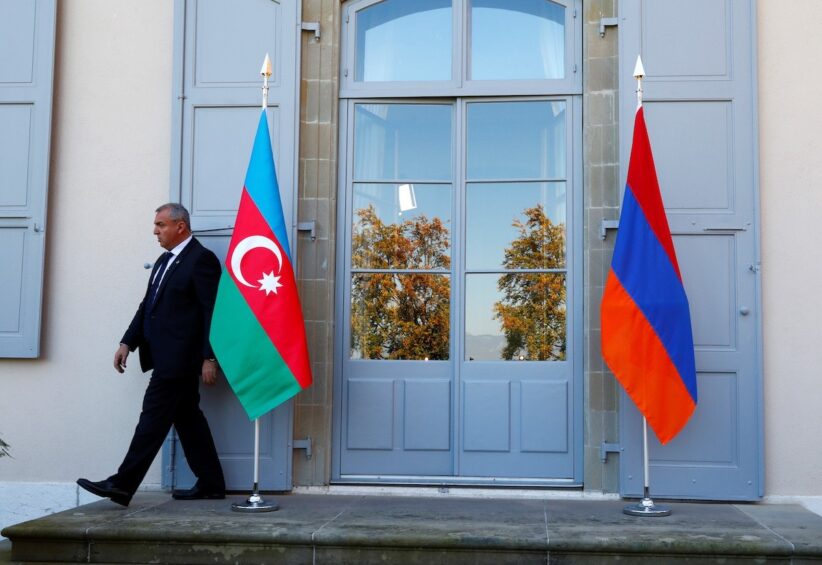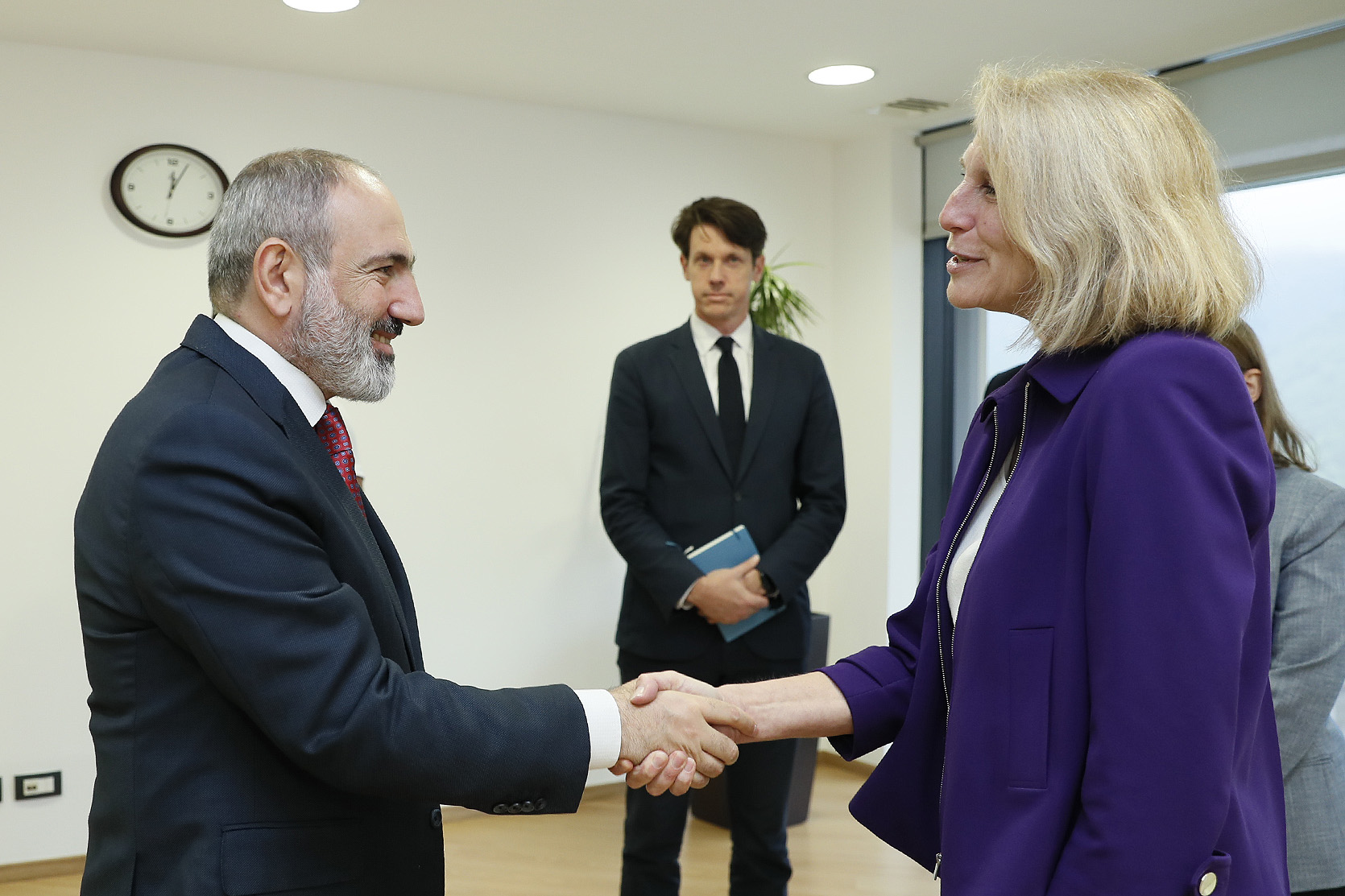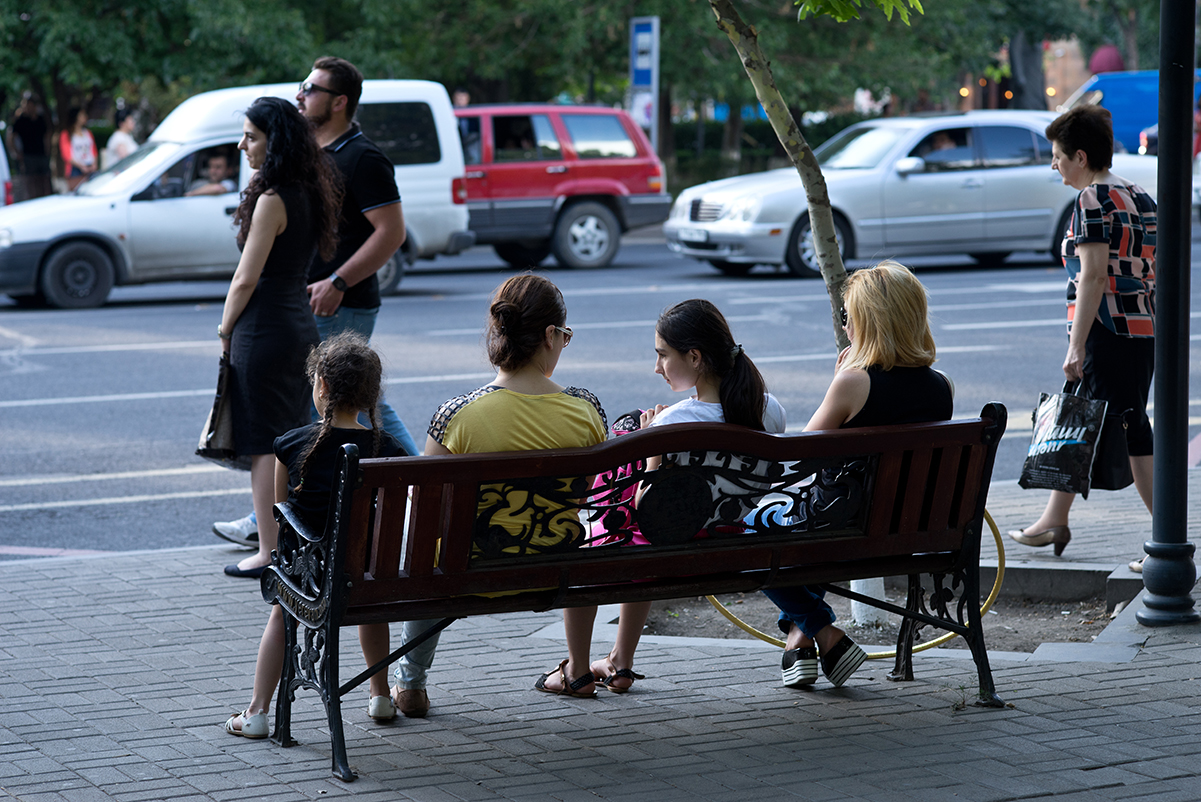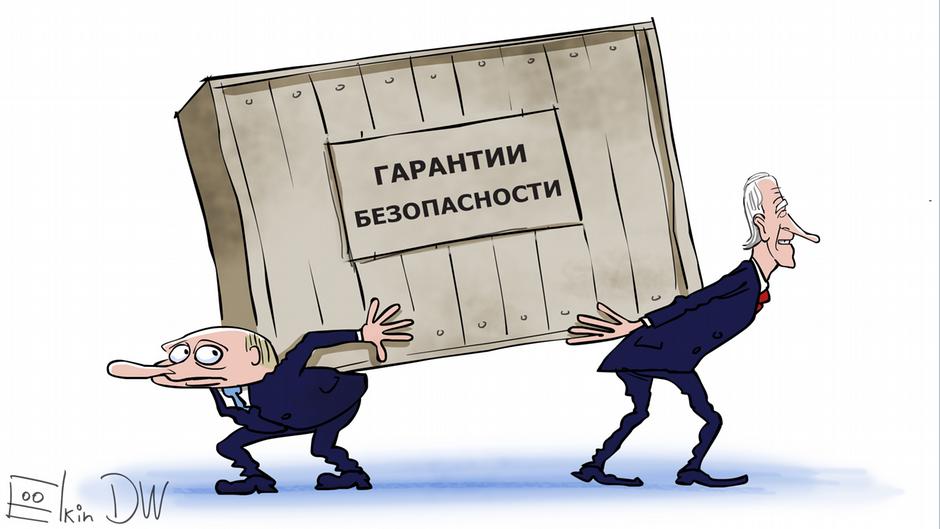Armenian Prime Minister Pashinyan: “Baku is trying to legitimize another war”
Pashinyan’s online press conference
“Baku wants to legitimize another war, therefore it refuses dialogue, publicly accusing Armenia [of refusing to participate in the negotiations]”, the Armenian Prime Minister said. After a five-month break, Nikol Pashinyan held another online press conference, already the fourth in this format.
This caused indignation of more than 30 media resources, which decided to boycott the press conference and did not send questions to the prime minister’s office. Their joint statement said that the online format was justified during the pandemic, but now was the time to restore direct contact with journalists.
PM Pashinyan’s press conference began with an address to the media that had boycotted it. The prime minister said that he had chosen this form of communication, considering it an opportunity, not coercion, and “there will always be a reason for a boycott”.
“Baku wants Armenia to remain in the blockade”
Speaking about the complicated relations with Azerbaijan, the Prime Minister of Armenia stressed that the unblocking of economic and transport communications in the region is the obligation of both countries. This is not a unilateral demand to Armenia, but a point of a joint statement signed with Azerbaijan on the cessation of hostilities in Karabakh.
“But Azerbaijan is trying to resolve the issue in a way that would leave Armenia in the blockade”, Pashinyan stressed.
According to him, the choice of routes for unblocking the region is small, a maximum of five options can be considered. But Baku is trying to politicize this technical issue, the prime minister believes:
“No one can be more interested in the issue of [unblocking] routes than we are․ Because we are faced with the task of sending as much international transit as possible along these roads, which will bring income to Armenia”.
According to the Prime Minister, Baku wants to legitimize a new war.
It is for this reason that the Azerbaijani side refuses dialogue, Pashinyan and cited a few examples. A meeting of the Secretary of the Security Council of Armenia and the Assistant to the President of Azerbaijan was scheduled for June 27 and was canceled by Baku. Armenia offered to meet at the level of foreign ministers, but has not received an official response yet.
Meanwhile, the President of Azerbaijan earlier accused Armenia of allegedly rejecting a proposal to hold a trilateral meeting in Tbilisi at the level of the foreign ministers of Armenia, Azerbaijan and Georgia. And the Armenian Foreign Ministry had to refute this information.
According to Pashinyan, Baku demonstrates the same approach in connection with the work of the commission on the delimitation of the Armenian-Azerbaijani border. He believes that Azerbaijan is trying in this way to create the impression that Armenia is avoiding participation in the work of the commission:
“However, reality is different. During May, the Azerbaijani side canceled or postponed this meeting twice”.
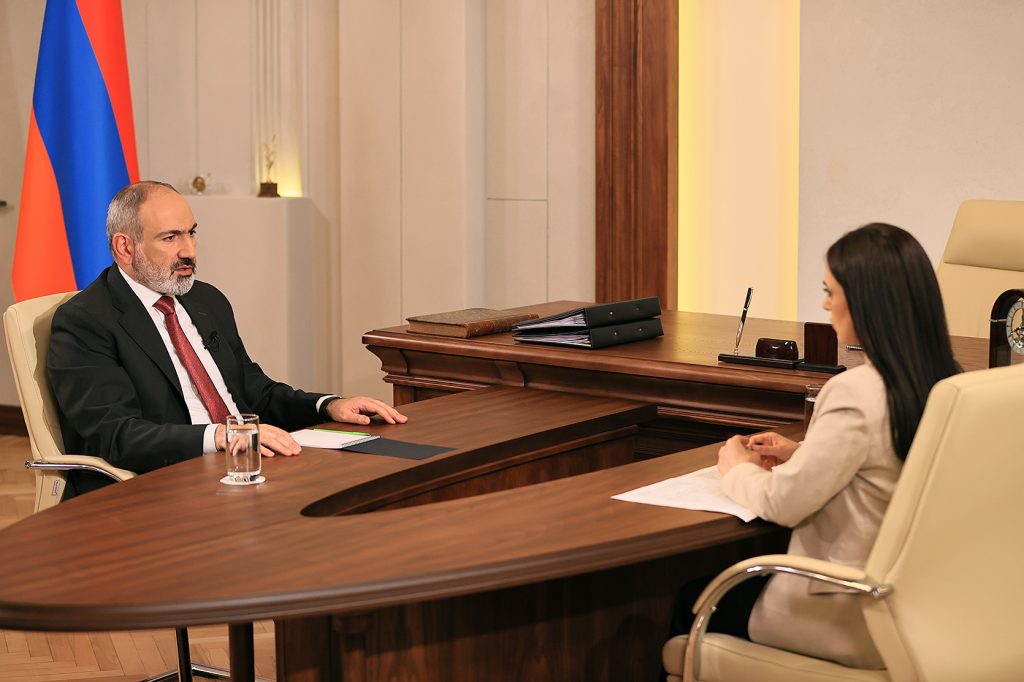
“There is no other document on the table”
According to the prime minister, preliminary discussions have already been held with Azerbaijan on the peace treaty and there are agreements to continue work. Therefore, Pashinyan considers “very strange” Baku’s statements that “Armenia is dragging out negotiations on a peace agreement.”
“As a result of the discussions, it was decided that the officials of Armenia and Azerbaijan should keep in touch with each other, but we already have at least one such case when Azerbaijan boycotted the work contrary to the agreements,” Pashinyan stressed.
The provisions of the agreement and a number of other issues are yet to be discussed. The Prime Minister assures that there is no other document at the negotiating table, except for the one already published.
This is a five-point document from Azerbaijan on the principles on which the peace treaty should be based. The Armenian side announced that there is nothing unacceptable in it, but it does not cover the entire agenda of issues to be discussed, and added its 6 points.
Territories to be handed over to Azerbaijan
During the press conference, Pashinyan also spoke about the transfer of new territories to Azerbaijan. After the completion of the construction of an alternative road to the Lachin corridor, which connects Armenia with NK, the territories outside the former Nagorno-Karabakh Autonomous Region will come under the control of Azerbaijan. This refers to the city of Berdzor (Lachin), as well as the settlements of Agavno and Sus.
“We are solving the problems of the inhabitants of Lachin [the government of Armenia], they, of course, should be provided with apartments. In fact, families do not live in Lachin today. I think that the problems of the residents of the village of Aghavno will be resolved at the expense of the government of Nagorno-Karabakh․ I can’t say anything about Sus, I don’t have any information at the moment”.
According to the prime minister, the purpose of building a road bypassing Lachin is to provide a “more reliable” road connection between Armenia and Nagorno-Karabakh. Pashinyan has confirmed that there is a preliminary agreement on the construction of the road and the transfer of territories to Azerbaijan. But the prime minister believes that there can be no question of this happening this or next week.
According to the 2020 tripartite declaration of cessation of war, the route change should take place by agreement of the parties and after three years.
According to Pashinyan, negotiations on this topic are now in progress with Russian partners, since the new route, according to the trilateral statement, should be controlled by Russian peacekeepers.
“The goal is to discredit the peacekeepers”
According to Azerbaijan, 38 Armenian prisoners of war are still being held in Baku. Armenian human rights activists claim that there are many more of them. During a press conference, Pashinyan stated that all those who have reliable evidence that they were captured and can now be on the territory of Azerbaijan are considered “forcibly displaced”. Even a list of these people was compiled, but the prime minister did not say how many people were on it.
Pashinyan emphasized that more than 90% of the confirmed prisoners were captured after the entry of Russian peacekeepers into NK, in their zone of responsibility:
“Azerbaijan’s policy of not returning prisoners is aimed at discrediting the activities of Russian peacekeepers in Nagorno-Karabakh, in the Lachin corridor”.
He believes that the Armenian side, Russia and the international community should make additional efforts to return the prisoners. The Prime Minister assesses their retention in Azerbaijan as a violation of the November 9, 2020 tripartite ceasefire statement:
“It says that prisoners of war, hostages, and other detainees must be returned to their homeland. There are people who were captured before November 9, and there are those who were later captured. But the November 9 statement does not say that this clause does not concern them”.
“Baby steps to move forward”: about the Armenian-Turkish relations
“There is an opportunity for a positive shift, and we must do everything to use it,” the prime minister said about the normalization of Armenian-Turkish relations.
According to him, if negotiations are ongoing, then there is “a realization that a settlement is possible,” and we need to move forward in small steps.
However, Pashinyan believes that some statements that come from Turkey have a negative impact on this process, create a negative background. In particular, he touched upon the wording “Zangezur corridor”.
This refers to the road through the territory of Armenia, which will connect Azerbaijan with its exclave Nakhichevan. Azerbaijan and Turkey call this road a “corridor”. The Armenian side has repeatedly announced that it agrees to unblock communications, but with the preservation of sovereign control over these roads, since the term “corridor” implies a loss of sovereignty.
At the same time, Pashinyan stressed that dissatisfaction with the statements of the Turkish side does not mean the end of the dialogue with the Armenian side.











